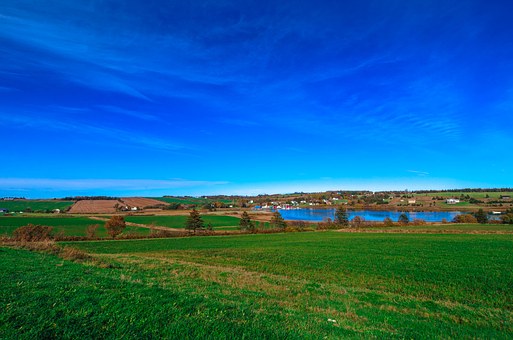
Although it’s a centuries-old occupation and potentially one of the first to ever exist, farming is typically not the road that many take to become rich. With craft breweries on the rise in Canada, however, the shortage of hop farms may bring a windfall for those who took a gamble to start with something in a unique niche.
Hop is the ingredient that adds the bitter flavor and aroma to beer, but up until recently, growing it was all but a dead industry in Canada. Most hop farmers have traditionally only grown small crops, but with the recent increase in demand, those small fields are turning into huge acreages and still resulting in low supply. As anyone in the commodities business knows, low supply leads to higher prices when there is a high demand.
Hop is a pretty low-maintenance crop. It’s a perennial plant, and for the most part once it’s established, the farm can replenish itself year after year. Canada’s hop farms are experiencing a peak that has no end in sight, which is allowing them to reap the profits. Not only is this great for farmers, but it is also employing hundreds of field hands across many provinces.
Up substantially from just three decades ago, there are now over 120 craft breweries in British Columbia that are supplied by 30 hop growers, through farmers online connections. The number of farmers is up to 30 from just three just ten years ago. In fact, last year alone, 16 new breweries began operations; 24 started the year before. One of the fastest-growing industries in British Columbia, breweries and hop farms are taking in billions of dollars and boosting the overall economy substantially.
The biggest drawback to a hop farm is that the start-up costs are significantly higher than for other types of crops. Hop requires heavy watering and results in plants that are more than 20 feet high, requiring specialized and expensive equipment to harvest.
The reason that start-up costs are so extreme is that the plants require extensive irrigation systems and trellises that can cost upwards of tens of thousands of dollars per acre. When you begin to multiply the money needed to invest in just one farm, it is easy to see why not many farmers are up for the challenge, which is why it’s a small niche market.
Not designed for quick yield, the plants themselves can take up to four years to be ready for harvest, which is why breweries can’t seem to get enough around Canada to meet the demand. An acre that is ready to harvest can be sold for anywhere from $10,000 to $25,000, which can make for a profitable career once the initial investment is absorbed.
Thanks to the popularity of craft brewing, hop prices continue to climb. Just a pound of quality hop can earn as much as $10 to $12, with unique and specialty hop earning as much as $20 a pound. The biggest impact on hop farms, both in Canada and abroad, are a classification of beer called “pale ales.” Almost entirely determined and flavored by the richness of the hop, they command the highest price. Needing much higher hop content, they are much more demanding than mass-distributed beers.
The good news for hop farmers is that forecasters believe that the rise is not going to end anytime soon. As a very specialized crop, the demand will keep farmers in business for the long term. Throughout the early 1900s, Canada was one of the countries that had an abundance of hop farmers, but due to stagnant hop prices in the 90s, difficulty with pest control, and foreign competitors who seemed to have a lease on demand, the last farm in British Columbia closed business in 1997.
Traditionally, British Columbia has been one of the biggest hop growers in the world. Coming near to extinction at one point, Canada may never equal its biggest competition in Washington, but the boom is exciting many who would like to see hop farms return as a lucrative option around the British Columbian countryside. The key, as hop farmers know, is not to yield high numbers but quality crops, and to find the unique taste that people will import around the world. Thanks to craft breweries, hop farms may find their place again as a Canadian commodity.





Leave a Comment